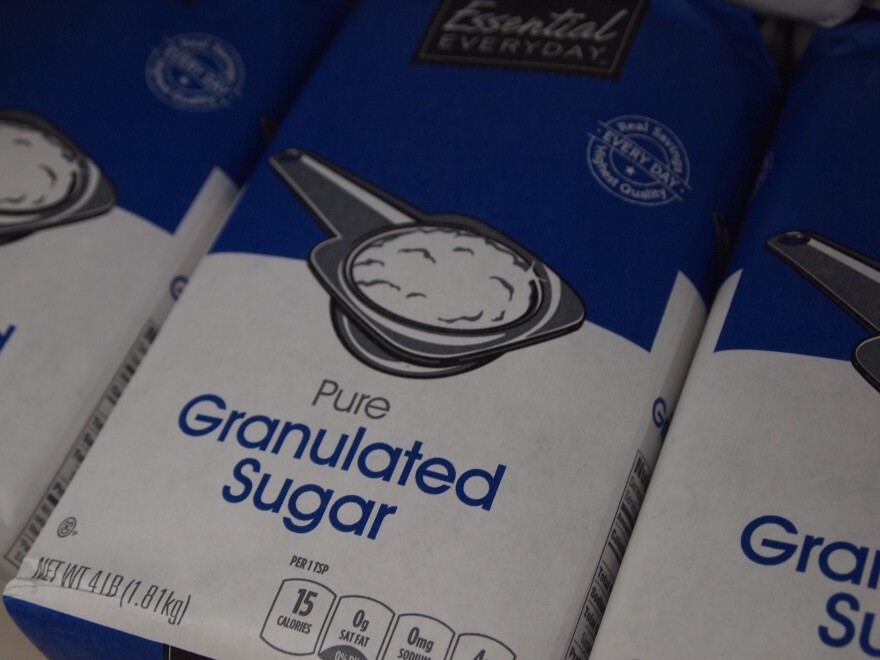I have hesitated to make good on a promise to expose sugar as an addictive substance. It is as if I were doubting my mother's love or the core of my existence; for if little girls are made of sugar, what is the substance of women? Are boys and men made of sugar as well?
Why do we defend sugar and what are we without it? Think of our vocabulary: “sweet” now means “awesome,” and “bitter” is bad. Cupcakes are the new black.
Exposing our deadly love affair with sugar is irritating, for sugar must be sweet, pure, and innocent: think of Girl Scout cookies. But the truth of added sugars, whether they come from cane, corn or other sources, is that their production and marketing is driven by hatred and greed, not love, and the reach of them into our imaginations, bodies, schools, churches, histories, nations and environment is extensive, cruel, and destructive.
Still, we doubt there is a problem and avoid the evidence. Here in the heartland, every day we consume 3 to 4 times more added sugar than the limit set by the American Heart Association, and this is particularly dangerous for children and teens, because added sugars are most destructive over time. Children on sugar may appear healthy now, but disease is eminent.

On Sugarscience.org, independent scientists conclude that added sugars cause public health epidemics such as heart disease, diabetes, fatty liver, and blurred vision. Many scientists are convinced that added sugars, even in perceived moderate amounts, cause cancer, Alzheimer’s, cognitive decline, memory loss, inflammation, mood instability, and nerve damage.
This year, movie theatres across the world screened That Sugar Film, which features Damon Gameau accelerating the sugar disease progression by consuming 40 grams of sugar a day for two months, mostly hidden in so-called low-fat health foods like cereal, yogurt, juice, energy bars, and condiments. Sick becomes his new normal. That Sugar Film is available by streaming and DVD.
Added sugars are addictive: the brain reacts to treats and candy as it does to nicotine and cocaine. Michael Moss, author of Salt, Sugar, Fat, documents how the corporate food industry has relentlessly sought to addict consumers, especially children, to added sugars. Like the lung cancer survivor addicted to cigarettes, some diabetics regularly indulge in candy and treats. Many folks insist sugar is okay in moderation—they said that about cigarettes, as well.
Restaurants and grocery stores are land mines of hidden sugar-- even the health market aisle. 74% of packaged foods contain added sugars. By hiding sugars in convenient packages, like a cereal box or jar of pasta sauce, the industry has skewed American palate and perception. We no longer tolerate anything unsweetened—consumers allow the industry to put sugar in fruit, salads, meat, and dairy, etc., etc.
To feed our addiction to sugar, we violate human rights. In his classic book, Sweetness and Power, Sidney Mintz chronicles how demand for cane sugar has fueled a global culture of imperialism and slavery. The American sugar lobby has attempted to sabotage the screenings of two movies that document 21st-century slave trafficking on Caribbean sugar plantations. These award-winning films are The Sugar Babies and The Cost of Sugar.
The environment also pays for our sweet tooth. The World Wildlife Fund documents that sugarcane is as destructive to the environment as any other agricultural commodity, including dairy and beef. Like sugarcane, industrial corn, often grown for high fructose corn syrup, takes a great toll on the environment and contaminates tap water.
Before you choose Halloween treats over tricks, consider this horror story: sugar is a tale of slavery, environmental destruction, corporate greed, and consumer addiction and disease. The good news is we can imagine a new story. We do not have to buy corporate food lies or accept sugar diseases as normal. We can think outside the cereal box.
Holly Stovall is an Assistant Professor of Women’s Studies at Western Illinois University.
The opinions expressed are not necessarily those of the University or Tri States Public Radio. Diverse viewpoints are welcomed and encouraged.









